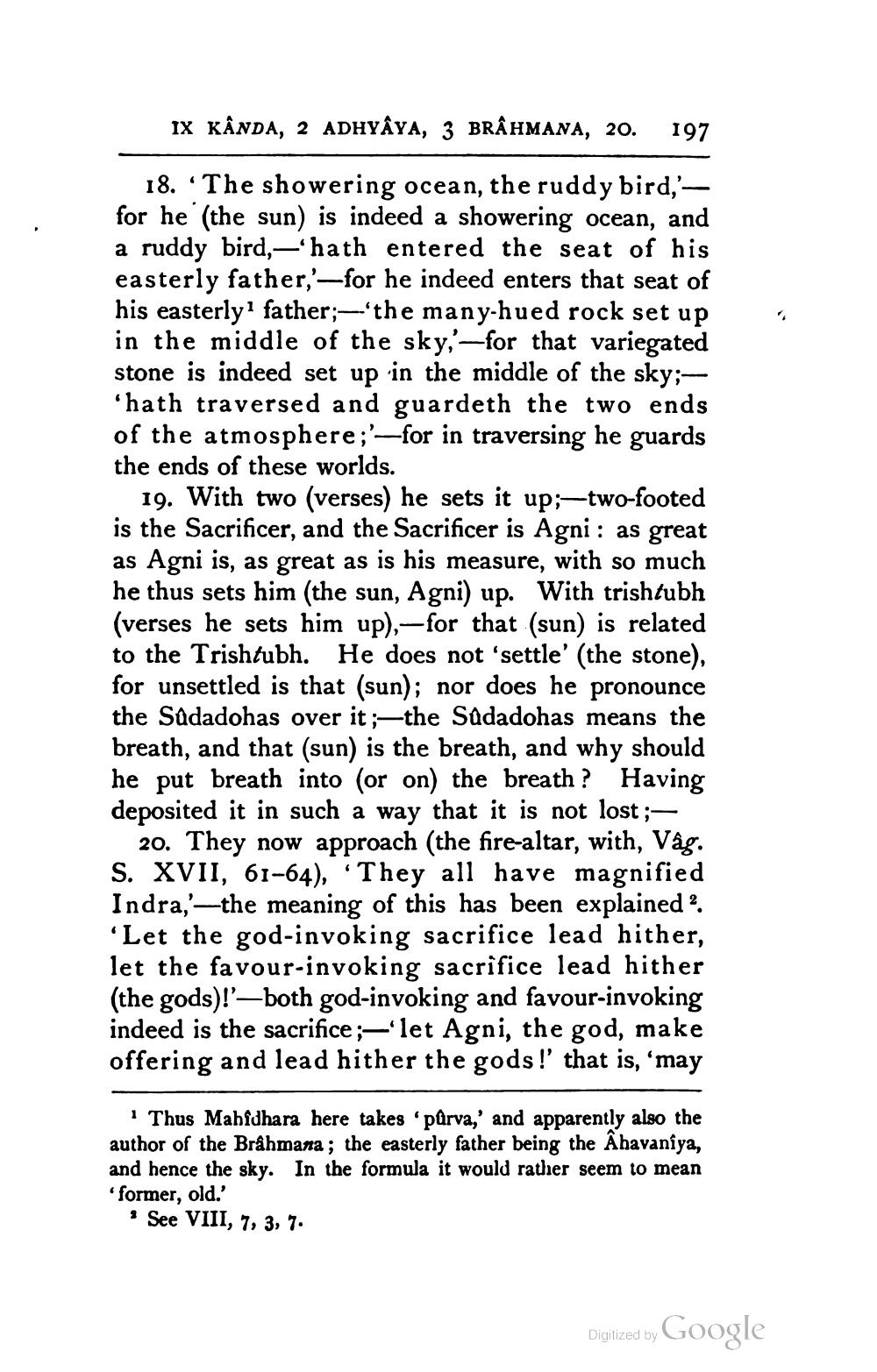________________
IX KÂNDA, 2 ADHYÂYA, 3 BRÂHMANA, 20.
197
18. “The showering ocean, the ruddy bird,'— for he' (the sun) is indeed a showering ocean, and a ruddy bird, hath entered the seat of his easterly father,'—for he indeed enters that seat of his easterly' father;—'the many-hued rock set up in the middle of the sky,'—for that variegated stone is indeed set up in the middle of the sky;'hath traversed and guardeth the two ends of the atmosphere;'—for in traversing he guards the ends of these worlds.
19. With two (verses) he sets it up;-two-footed is the Sacrificer, and the Sacrificer is Agni : as great as Agni is, as great as is his measure, with so much he thus sets him (the sun, Agni) up. With trishtubh (verses he sets him up),- for that (sun) is related to the Trishtubh. He does not 'settle' (the stone), for unsettled is that (sun); nor does he pronounce the Sadadohas over it ;—the Sadadohas means the breath, and that (sun) is the breath, and why should he put breath into (or on the breath ? Having deposited it in such a way that it is not lost ;
20. They now approach (the fire-altar, with, Vâg. S. XVII, 61-64), “They all have magnified Indra,'—the meaning of this has been explained 2. 'Let the god-invoking sacrifice lead hither, let the favour-invoking sacrifice lead hither (the gods)!'—both god-invoking and favour-invoking indeed is the sacrifice;- let Agni, the god, make offering and lead hither the gods!' that is, 'may
· Thus Mahfdhara here takes 'půrva,' and apparently also the author of the Bråhmana; the easterly father being the Ahavaniya, and hence the sky. In the formula it would rather seem to mean former, old.' · See VIII, 7, 3, 7.
Digitized by Google




